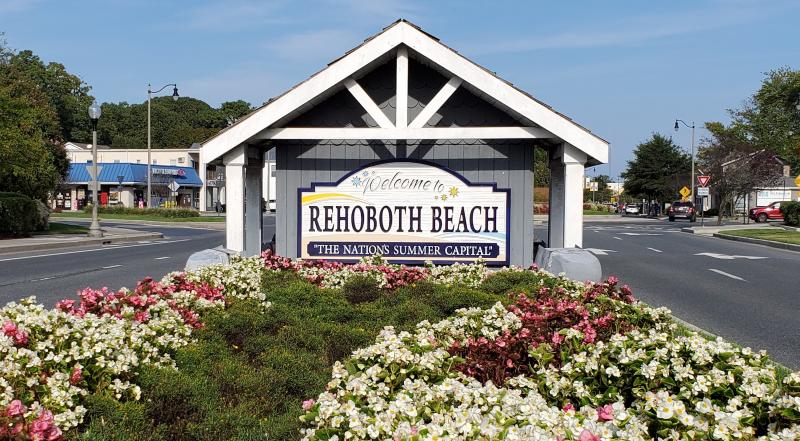Rehoboth defers hearing on gross floor area
At the request of Mayor Paul Kuhns, Rehoboth Beach commissioners postponed a public hearing and possible vote on an ordinance that would change how gross floor area and floor-to-area ratio are calculated in city code.
As proposed, the ordinance defined exterior walls – walls enclosing indoor space – and added subsurface parking as an exception toward the calculation of gross floor area.
Kuhns began the July 17 commissioner meeting by saying he had been persuaded to postpone the public hearing because it was a complicated issue and there were too many questions left. He suggested sending it back to city staff to continue to work on the subject, and they could present the commissioners with changes in the future. All the commissioners agreed.
The city began discussing gross floor area calculation last summer, when it was pointed out how the gross floor area of decks, balconies and porches had been applied differently between commercial and residential construction. Primarily, those areas hadn’t been calculated in residential structures, while in commercial areas they had.
Soon after the inconsistency was pointed out, City Building Inspector Damalier Molina said the city’s building and licensing department would include those areas in all new construction, commercial and residential.
Almost immediately, commissioners were concerned that a significant portion of new residential construction would now be out of compliance.
Commissioner Susan Gay said the process started out with a simple goal, but crafting language for the ordinance wasn’t so simple.
A significant majority of the more than two dozen letters the city received prior to the meeting agreed with Gay. They said there were unintended consequences for passing the ordinance as proposed, especially the portion related to defining exterior walls.
By not counting any outdoor spaces in the gross floor area and floor-to-area calculations, said resident Donna Mabry in one letter, the code will permit the mushrooming of porches, balconies, and decks on both residential and commercial buildings, greatly increasing the overall bulk of those structures.
Commissioner Lisa Schlosser said the intent of the ordinance was simply to get language in the code that would return things to the way they had been done in residential construction for the past 20 years.
Kuhns suggested breaking the one ordinance into two ordinances – one dealing with underground parking and one dealing with the definition of an exterior wall. There doesn’t seem to be as much controversy surrounding the underground parking, he said, adding that it will be a discussion item during the commissioners’ Monday, Aug. 10 workshop.
Commissioner Richard Byrne agreed with the postponement, but he said he hopes it’s not put off too long because it’s a fairness issue. There are people building or planning to build, and it’s not fair they don’t have a clear picture, he said.
Parking revenue shortfall
As expected, COVID-19 is having a negative effect on Rehoboth’s revenue this fiscal year, which began April 1.
During the city manager’s report portion of the meeting, City Manager Sharon Lynn gave an update on parking revenue. She said the city is roughly $678,000 down in expected parking revenue through July 15.
The first quarter of Rehoboth’s fiscal year ends Friday, July 31. Lynn is expected to give a full accounting of the first quarter during the Aug. 10 workshop.
$1.5 million in wastewater plant improvements approved
Commissioners unanimously approved $1.5 million worth of structural improvements to the city’s wastewater treatment plant during the recent meeting. Awarding the installation contract was done in conjunction with the $1.4 million contract commissioners approved in May to build three of four mixers used in the wastewater treatment plant’s oxidation ditch.
During a commissioner workshop July 10, Public Works Director Kevin Williams said approval of the improvements would put the city on track to have the work done before the peak season next year.
According to the document prepared for the July 10 meeting, improvements include structural repairs to the flooring system, replacement of influent pipes, replacement of mechanical screening systems in the headworks building, and structural repairs to existing oxidation ditches.
As approved, the city would pay $870,000 of the improvements, while the county would pay the remaining $630,000. This breakdown represents the 58 percent/42 percent usage agreement between the city and Sussex County.
Following the meeting, in an email, Williams said the request, and loan terms, still need to be taken to Sussex County Council for final approval. He said he expected Kuhns to officially ask the county for approval in letter form at the council’s next meeting.
Chris Flood has been working for the Cape Gazette since early 2014. He currently covers Rehoboth Beach and Henlopen Acres, but has also covered Dewey Beach and the state government. He covers environmental stories, business stories and random stories on subjects he finds interesting, and he also writes a column called Choppin’ Wood that runs every other week. Additionally, Flood moonlights as the company’s circulation manager, which primarily means fixing boxes that are jammed with coins during daylight hours, but sometimes means delivering papers in the middle of the night. He’s a graduate of the University of Maine and the Landing School of Boat Building & Design.
















































